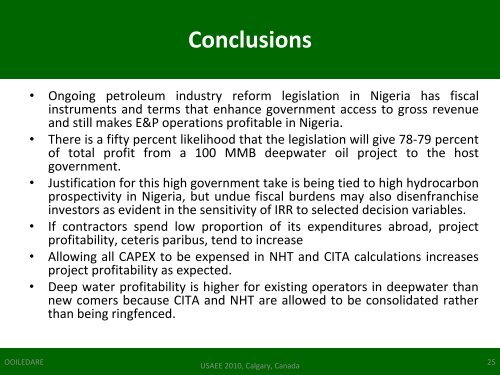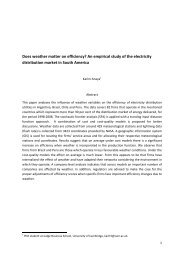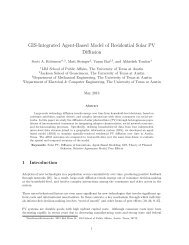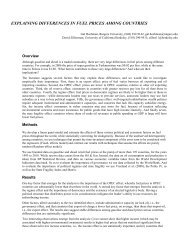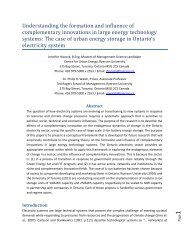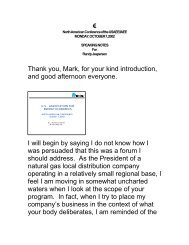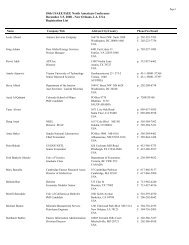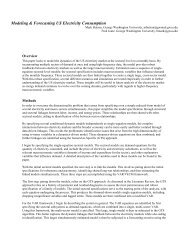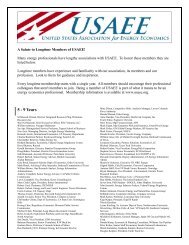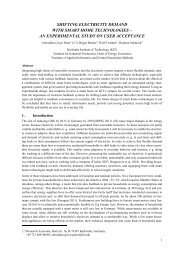PETROLEUM INDUSTRY REFORM IN NIGERIA: SIMULATION ...
PETROLEUM INDUSTRY REFORM IN NIGERIA: SIMULATION ...
PETROLEUM INDUSTRY REFORM IN NIGERIA: SIMULATION ...
You also want an ePaper? Increase the reach of your titles
YUMPU automatically turns print PDFs into web optimized ePapers that Google loves.
Conclusions<br />
• Ongoing petroleum industry reform legislation in Nigeria has fiscal<br />
instruments and terms that enhance government access to gross revenue<br />
and still makes E&P operations profitable in Nigeria.<br />
• There is a fifty percent likelihood that the legislation will give 78‐79 percent<br />
of total profit from a 100 MMB deepwater oil project to the host<br />
government.<br />
• Justification for this high government take is being tied to high hydrocarbon<br />
prospectivity in Nigeria, but undue fiscal burdens may also disenfranchise<br />
investors as evident in the sensitivity of IRR to selected decision variables.<br />
• If contractors spend low proportion of its expenditures abroad, project<br />
profitability, ceteris paribus, tend to increase<br />
• Allowing all CAPEX to be expensed in NHT and CITA calculations increases<br />
project profitability as expected.<br />
• Deep water profitability is higher for existing operators in deepwater than<br />
new comers because CITA and NHT are allowed to be consolidated rather<br />
than being ringfenced.<br />
OOILEDARE<br />
USAEE 2010, Calgary, Canada<br />
25


